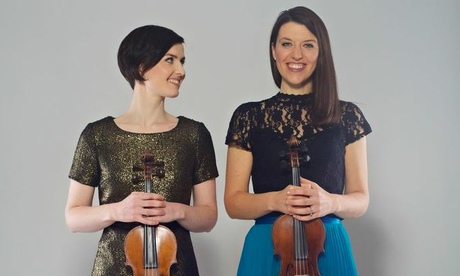
Now in its fourth year, the Cottier Chamber Project is thriving. This gutsy, lo-fi concert series operates on a shoestring yet attracts the best of Scotland's chamber musicians; it seems to run on plain goodwill, plus the appetite for decent grass-roots programming when plenty of festivals simply buy in lookalike bills of touring artists. Every year the project's professionalism notches up a peg – this year's opening weekend unveiled a newly acquired good piano (a loan from an audience member) and the full gorgeous interior of the 19th-century former church, Cottiers, at last rid of endless scaffolding.
In a year crowded with first world war commemorations, Cottiers also managed to come up with a fresh slant on the music of war. There was a deeply poignant set of Polish tango – that stern, klezmer-tinged, vibrato-drenched tango that emerged from the dance halls of Warsaw and Krakow between the world wars – delivered with real panache by Mr McFall's Chamber. The group also gave a gripping performance of the First Piano Quintet by Grazyna Bacewitz, a piece from 1951 full of thick French colours and raw, vehement expression.
The Shetland Bus is the nickname for the covert arms operation that ran between Shetland and Norwegian resistance fighters during the second world war. Sisters Jenna and Bethany Reid – two superb Shetland fiddlers – have composed a dozen heartfelt tunes to wrap around the epic saga of the fugitive Jan Baalsrud; Tim Goodlad told the tale in fine Shetland brogue against the backdrop of this beautifully sparse, acoustic chamber folk.
The ever-impish Concerto Caledonia played the Scottish soldier Captain Tobias Hume, who when not at battle composed some of the finest viol music of the early 17th century. This was brilliantly spirited playing, with supple, deep-felt viol duos interspersing brawn and sharp banter from tenor Thomas Walker.

